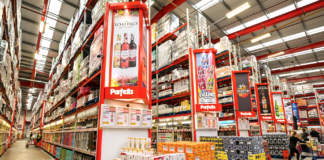Many wholesalers now share data with their suppliers, either directly or as part of a buying group. However, the reasons they are doing this are still largely focused on revenue generation.
But there are signs that some suppliers and wholesalers are looking beyond income and terms. Here then are five ways to ensure that you get full value back from the data that you sell:
Share as much data as possible if you want a constructive dialogue.
There is an inherent tendency to try to hide the big deals or buying on the legitimate grey market. The probability is that the supplier will know about it anyway and there is a strong argument to show a supplier all sales so that it can see what it is missing.
Think about what the supplier can actually do with the information.
There is a widely held belief that if a supplier can see from the data that it hasn’t grown with the category, it’s job done. It isn’t – it needs to see those depots or members where the problem is to get people in there to take action with local activity.
Show suppliers the full category, not just their sales.
If you want a supplier to come in with category recommendations, you have to show them the category rather than just their sales and the total. This does not mean that every supplier needs to see every SKU, but those that you want to take a category lead need to be given all the tools.
Buying teams must understand the data that is made available and its uses.
Most data provision lies outside the internal operational system and so there is a temptation for a buyer to see it as something that is sold to suppliers and that does not involve him or her. This is missing a great opportunity, as the data package can generally give greater insight than the internal system. Some sales-oriented reports produced for the buyer before supplier meetings can give focus here.
Make your meetings with suppliers analytical and actionable.
Make the first point on every buyer-supplier meeting a critique of the most recent data and recommended actions from it. This has several benefits: ensuring that the account manager comes in with a proactive agenda, assisting the buyer to understand trends, and making sure the value of the data is understood by all parties.
It is a fact of life that sales resource has been dramatically reduced, to the extent that many medium-sized wholesalers will only see account managers from the largest suppliers and even these less often. A combination of agency force and telesales covers many depots, purely as an order capture resource. By being proactive with data, more wide-ranging supplier engagement will result – trade marketing and sales people want to work with wholesalers that want to work with them.
The current scenario is to make data available at a price and then a supplier either buys it or doesn’t. In the multiples sector, however, data is provided for free if it helps the supplier trade with them more efficiently. This is a very under-developed area in wholesale that could provide operational and logistical benefits to all parties







